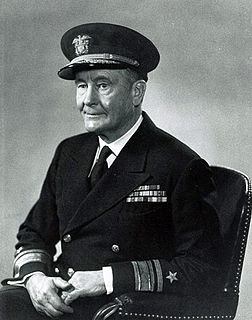A Quote by Samuel Eliot Morison
Military and absolutist regimes are undoubtedly well fitted to get the jump on an unsuspecting or unprepared enemy; but the history of modern warfare proves that they cannot win over representative governments in the long run, provided that people behind those governments have the heart to sustain initial punishment, and both the will and the resources to fight back.
Quote Topics
Back
Behind
Both
Cannot
Enemy
Fight
Fitted
Get
Governments
Heart
History
Initial
Jump
Long
Long Run
Military
Modern
Modern War
Modern Warfare
Over
People
Proves
Provided
Punishment
Regimes
Representative
Representative Government
Resources
Run
Sustain
The History Of
Those
Undoubtedly
Unprepared
Unsuspecting
Warfare
Well
Will
Win
Related Quotes
Thus we may know that there are five essentials for victory: He will win who knows when to fight and when not to fight. He will win who knows how to handle both superior and inferior forces. He will win whose army is animated by the same spirit throughout all its ranks. He will win who, prepared himself, waits to take the enemy unprepared. He will win who has military capacity and is not interfered with by the sovereign.
I think that our politics everywhere are gonna be going through this bumpy phase. But as long as we stay true to our Democratic principles, as long as elections have integrity, as long as we respect freedom of speech, freedom of religion, as long as there are checks and balances in our governments so that the people have the ability to not just make judgments about how well government is serving them but also change governments if they're not serving them well, then I have confidence that over the long term, progress will continue.
Government is best which is closest to the people. Yet that belief is betrayed by those State and local officials who engage in denying the right of citizens to vote. Their actions serve
only to assure that their State governments and local governments shall be remote from the people, least representative of the people's will and least responsive to the people's wishes.
By far the most numerous and most flagrant violations of personal liberty and individual rights are performed by governments... The major crimes throughout history, the ones executed on the largest scale, have been committed not by individuals or bands of individuals but by governments, as a deliberate policy of those governments-that is, by the official representatives of governments, acting in their official capacity.
Here we have the heart of the difference between Hayek and Keynes: one knew that markets work to give us the best of all possible worlds, while governments create and exacerbate malfunctions; the other imagined that governments were somehow capable of both perceiving and correcting malfunctions by means of the printing press, provided the right technocrats are in charge.
If terror groups are to be defeated, it is national governments that will have to do so. In nations like India, governments will have to call on the patriotism of citizens to fight the terrorists. In a nation like Pakistan, the government will have to be persuaded to deal with those in their midst who are complicit.
The reason territorial monarchs failed time after time against maritime powers was not that absolutist, non-consensual governments were incapable of building great fleets in peace - quite the reverse - but that they were unable to fund them in the crises of war. Mainly this was because they were forced to divert resources from the fleet to their armies, to fight territorial rivals frequently financed by their maritime enemy from the profits of sea trade.
Besides the advantage of being armed, which the Americans possess over the people of almost every other nation.... Notwithstanding the military establishments in the several kingdoms of Europe, which are carried as far as the public resources will bear, the governments are afraid to trust the people with arms.
Governments, like clocks, go from the motion men give them, and as governments are made and moved by men, so by them they are ruined too. Wherefore governments rather depend upon men, than men upon governments. Let men be good, and the government cannot be bad; if it be ill, they will cure it. But if men be bad, let the government be never so good, they will endeavour to warp and spoil it to their turn.
So long as I'm Commander-in-Chief, we will sustain the strongest military the world has ever known. When you take off the uniform, we will serve you as well as you've served us - because no one who fights for this country should have to fight for a job, or a roof over their head, or the care that they need when they come home.
Governments are based pincipally on force and deception. Democratic governments are based chiefly on deception, other governments on force. And democratic governments, if you get too uppity, give up on the deception and resort to brute force, as a lot of us found out in the sixites. Those who didn't find out in the sixites will find out in the near future because we're going to have a rerun.







































